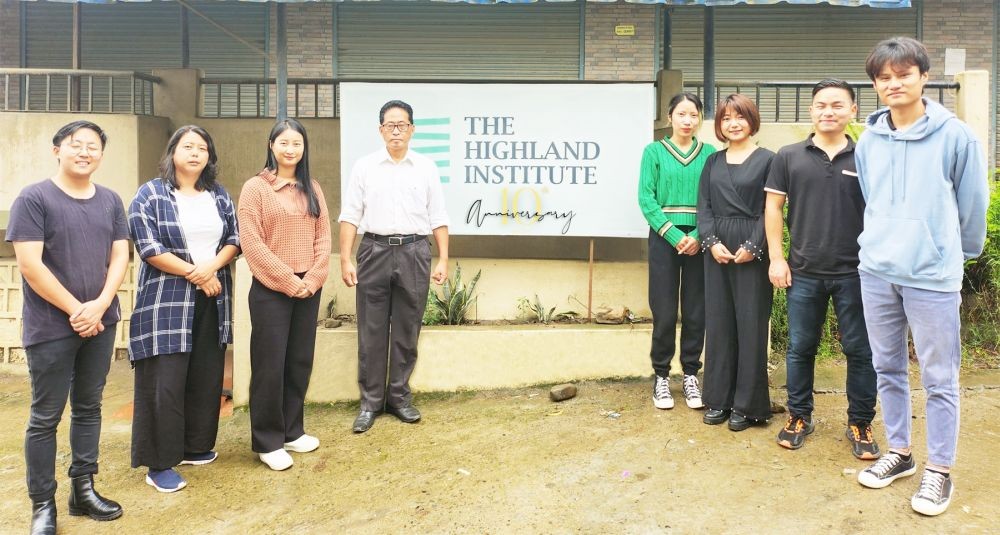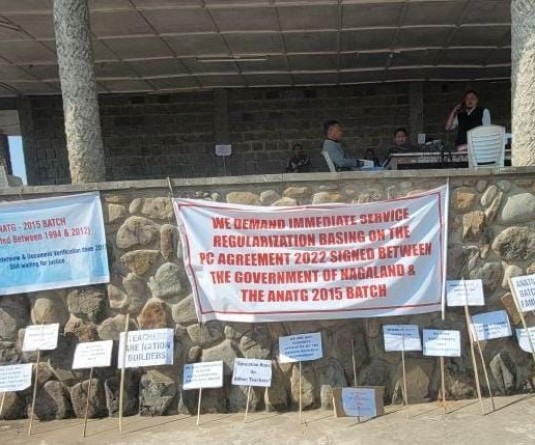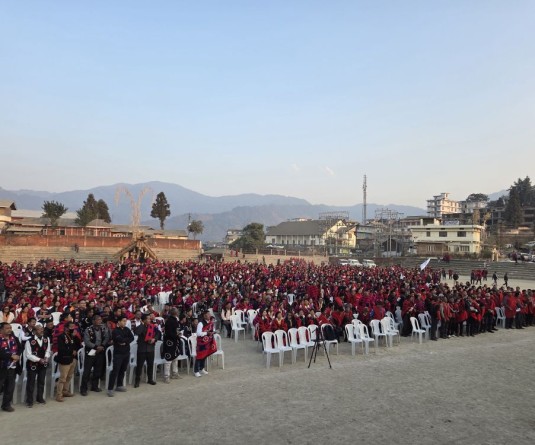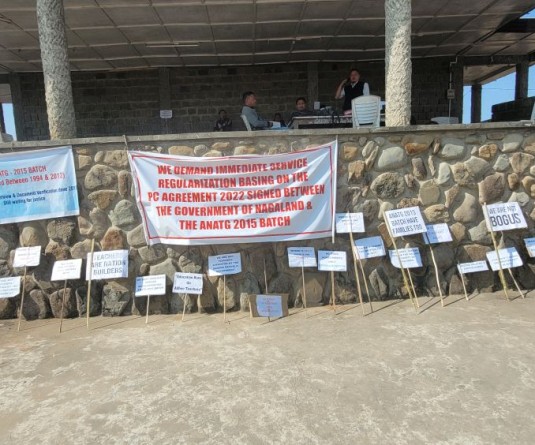The Highland Institute, an independent research institute in Kohima, celebrated its ten-year anniversary in June 2023.

Kohima, June 13 (MExN): The Highland Institute, an independent research institute in Kohima, celebrated its ten-year anniversary in June 2023. Founded on June 10, 2013 by Dr Michael Heneise and Dr Kekhrie Yhome and staffed principally by local graduates, the Institute, registered as a Trust, conducts research on cultural, historical, environmental, health, socio-political and developmental issues in highland Asia.
Previous projects include work on an important Karbi epic ‘Kecharhe Alun,’ investigating surgical care in four states, documenting youth-related problems in post-conflict situations, studying nutrition determinants and strategies in North-East India, and holding exhibitions, such as the recent ‘Ancestral Voices’ showcasing Nagaland’s changing soundscapes, stated an update received here.
Current projects include two multi-year studies on indigenous environmental knowledge and climate change, a review of Kohima’s tourist facilities, and Ekologos, a global environmental humanities initiative led by UiT the Arctic University of Norway.
From its Nagaland base, the Institute reaches out to a global network of collaborating scholars and academic institutions. Research partners have included Oxford Policy Management, UK universities in Leeds, Edinburgh, and Cambridge, RV University Bangalore, Centre for Karbi Studies, India-wide Doctors for You, the International Development Research Centre of Canada, the Danish Institute for International Studies, and the Nagaland Government. The Institute also has a vibrant community of associated research Fellows from distinguished universities around the world.
Commenting on The Highland Institute’s first decade, co-founder, Dr Michael Heneise said, “Research collaboration is a scarce commodity today. Yet, the radical transformation of Asia is impossible without good data, disinterested analysis, a stubborn radical uncertainty, a genuine desire for openness and sharing, and an unwavering commitment to independence.” He said, “ten years is a good milestone, but the next 10 will determine whether our philosophy has staying power. Even the most ethically fortified learning centres, non-profits, and learned societies are not immune to the sweet lullabies of profit or the anti-intellectualism hollowing out higher education everywhere. A healthy commitment to self-examination is critical. There‘s no better time for self-examination and future planning than a key milestone!”
Institute Board member, Dr Vizovol Mekro, former Principal of Phek Government College, has watched the Institute progress through its formative years. On the occasion of the 10th Anniversary he said, “For a place like Nagaland, in the far remote corner of India where facilities for research are minimal, it requires much courage, experience and good leadership to make such an institute functional and successful.”
Meanwhile, Catriona Child, Acting Director, drew attention to the establishment’s community role. “Our Institute exemplifies how global and local can work together. We have an active internship programme and, supported by our international Fellows, we train local scholars to become world-class researchers. Moreover, we regularly reach out to Kohima schools with events like our ethnographic film club and themed activity days,” he said.
The Highland Institute
The Highland Institute is an independent research centre focusing on socio-political, cultural, historical, environmental and developmental issues affecting communities in highland Asia. Founded in 2013, and registered as a trust, the institute collaborates with research centres in India and abroad in research, analysis, and disseminating findings. The institute has a vibrant community of associated research fellows from universities across the world that join as co-investigators on projects, facilitate research exchange, and lead postgraduate open courses. The Institute’s partners have included Oxford Policy Management, University of Leeds, University of Edinburgh, University of Cambridge, Centre for Karbi Studies, the International Development Research Centre of Canada, the Danish Institute for International Studies, and the Nagaland Government.
The Highland Institute Fellowship
The Highland Institute Fellowship seeks to attract world-class scholars actively engaged in both research and teaching in conjunction with partner institutions and granting agencies. Often based in staff positions in other universities around the world they engage in both short- and long-term research projects in South and Southeast Asia, and often work closely with postgraduate and early career researchers at the Institute in collecting, processing and publishing data and findings. Fellows may spend several weeks to several months engaged in fieldwork, and organise as well as present their ongoing work in the regular calendar of seminars, meetings and activities organised by the Highland Institute. Time permitting, they engage in intensive or term-length modular teaching at primarily the postgraduate and early career research levels, and occasionally conduct research training workshops in local partner colleges and universities.





.jpg)
